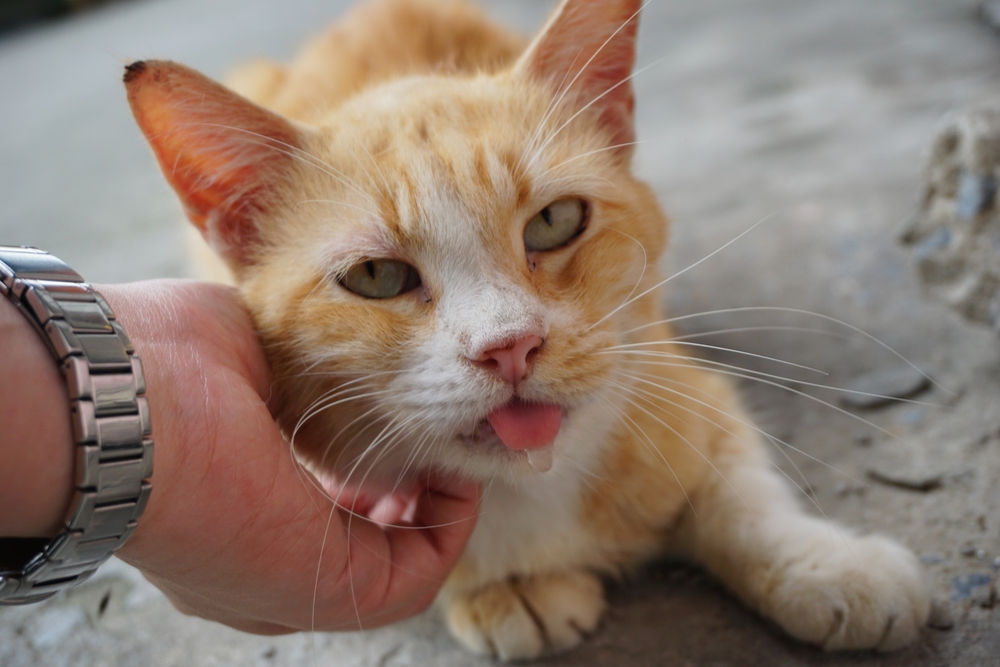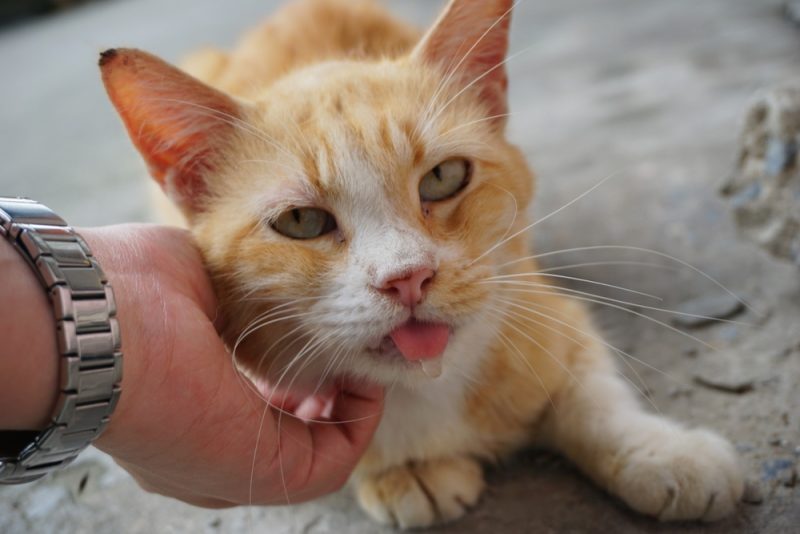Click to Skip Ahead
Catnip is a perennial herb popular with felines for its stimulating, possibly hallucinogenic effects. Catnip is generally safe for healthy adult cats, but some veterinarians suggest that kitties with histories of seizures avoid it, as concerns have been raised regarding its potential to cause seizures when consumed in high amounts.
The best way to ensure your cat stays happy and healthy is to ask your veterinarian if it’s okay for your companion (given their health and medical history) to enjoy a bit of catnip.
What Is Catnip?
Catnip is a perennial herb with square stems and serrated leaves that produce little white flowers. Its catofficial name is Nepeta cataria, and big cats like lions and tigers also enjoy its effects. It’s part of the mint family and is related to oregano and basil.

How Does Catnip Work?
Nepetalactone, a chemical found in catnip’s stems, seeds, and leaves, causes cats to get high. After a good sniff, kitties experience a euphoric rush, which lasts for around 10 minutes.
However, cats react differently to catnip. It makes some energetic while it mellows others out. Pets who get the zoomies from catnip often settle down for naps after the effects wear off.
What Are Seizures?
Seizures are electrical disturbances in cats’ brains that cause unconsciousness and behavioral changes. There are several types of seizures, but focal, generalized, and psychomotor seizures are the variants most commonly seen in cats.
Cats experiencing focal seizures don’t lose consciousness, but they can appear disoriented. Generalized seizures cause pets to lose consciousness and have convulsions.
Psychomotor seizures are sometimes considered a subset of focal seizures and involve involuntary behaviors such as mouth chomping and tail chewing.
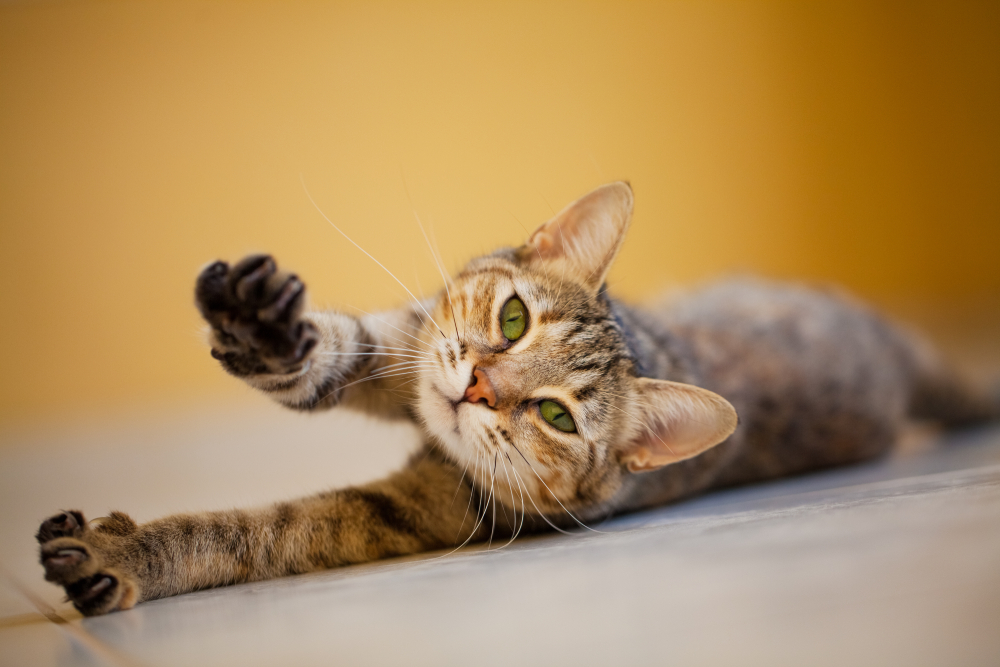
Does Catnip Cause Seizures?
There are no known cases of seizures unequivocally linked to seizures however, some veterinarians recommend avoiding this plant in cats already prone to seizures. A related plant, Nepeta menthoides, has been linked to seizures 1. Catnip itself has been shown to increase susceptibility to seizures in mice 2.
What Sorts of Things Can Cause Seizures in Cats?
Seizures can be caused by toxin exposure, systemic diseases, epilepsy, heat stroke, low blood sugar, brain conditions, tumors, and strokes. They can sometimes be triggered by bright lights and loud noises in cats with seizure disorders.
1. Toxins
Products such as antifreeze and rat poison can cause cats to have seizures, and they can also occur when they consume toxic levels of medications.
2. Systemic Diseases
Conditions such as thyroid, kidney, and liver disease can all cause seizures, often multiple ones.

3. Epilepsy
Primary epilepsy has no known underlying cause but is not common in cats. Epileptic cats are usually diagnosed early in their adulthood; 1-7 years old. There may be an underlying genetic predisposition to primary epilepsy.
4. Heatstroke and Fevers
Cats whose temperatures become too high are at risk of experiencing seizures. High fevers and heat strokes can cause them to overheat, which can cause seizures.
5. Low Blood Sugar
Low blood sugar is a problem that’s common in malnourished kittens, and illnesses and parasites can affect their blood sugar levels. Diabetic cats who use insulin can also end up with hypoglycemia if they receive too much medication.
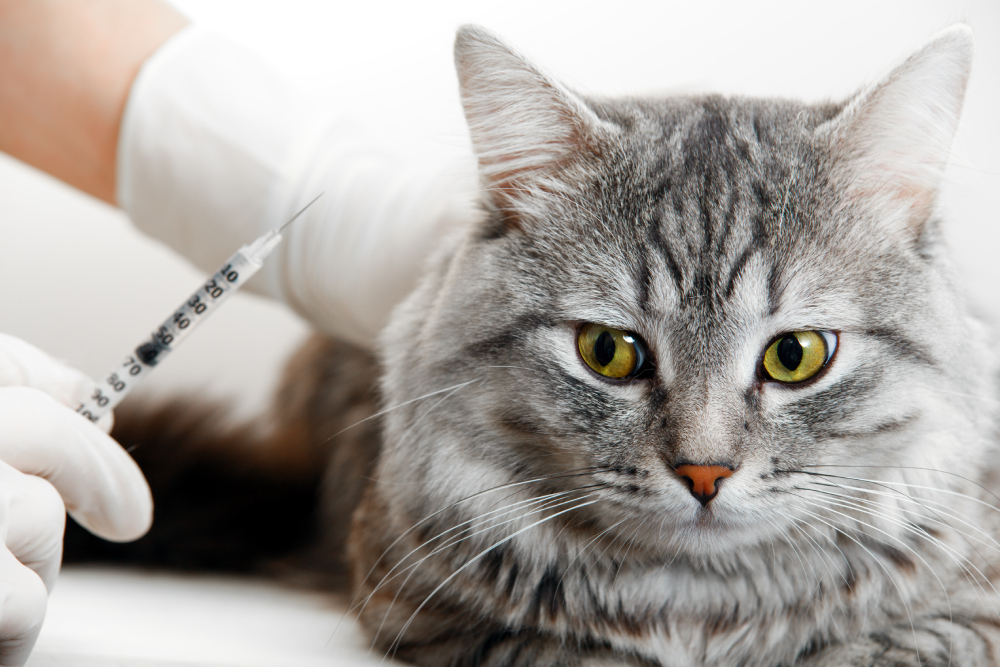
6. Brain Conditions
Cats can suffer seizures due to brain inflammation, which can be linked to infections or auto-immune problems. Common infections that can lead to brain inflammation in cats include cryptococcus and toxoplasmosis. Almost any disease that’s located in or close to a cat’s brain has the potential to cause seizures.
7. Tumors
Cats can develop seizures due to brain tumors, which can be malignant or benign. Meningiomas are the most common type seen in cats. They’re generally benign and can sometimes be surgically removed. Older cats tend to develop brain tumors more often than younger ones.
8. Stroke
Strokes aren’t that common in cats, but when they occur, they’re related to existing problems such as kidney failure, heart problems, diabetes, and hyperthyroidism, which increase their risk of developing high blood pressure.
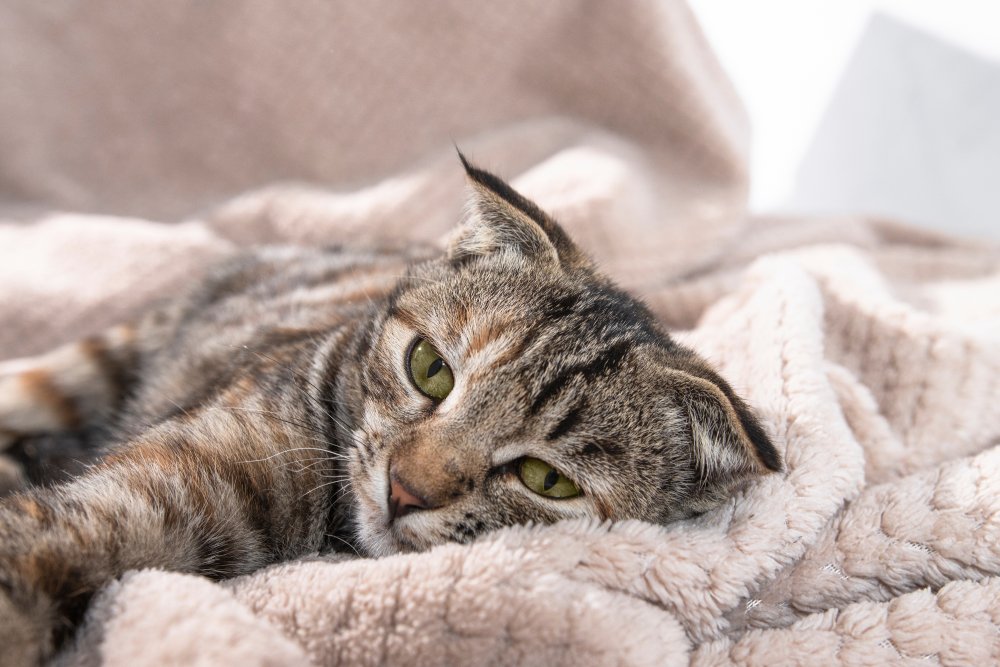
How Do Veterinarians Diagnose the Cause of a Cat’s Seizures?
Veterinarians usually use a combination of tools to determine what’s causing a cat’s seizures, including blood, urine, spinal fluid, and infectious disease testing. Blood pressure checks are performed, and X-rays, ultrasounds, and MRIs are sometimes ordered.
How Are Cat Seizures Treated?
It depends on what’s causing them. Cats with seizures linked to toxins, low blood sugar, or serious illnesses need to stay in the hospital to receive supportive care.
Kitties whose seizures are related to kidney disease, diabetes, or liver problems must have their conditions treated long-term as part of an overall health plan that also includes seizure management.
Veterinarians sometimes recommend taking a wait-and-see approach after initial one-off seizure events. There are anticonvulsant medications that can be used to manage most seizures.
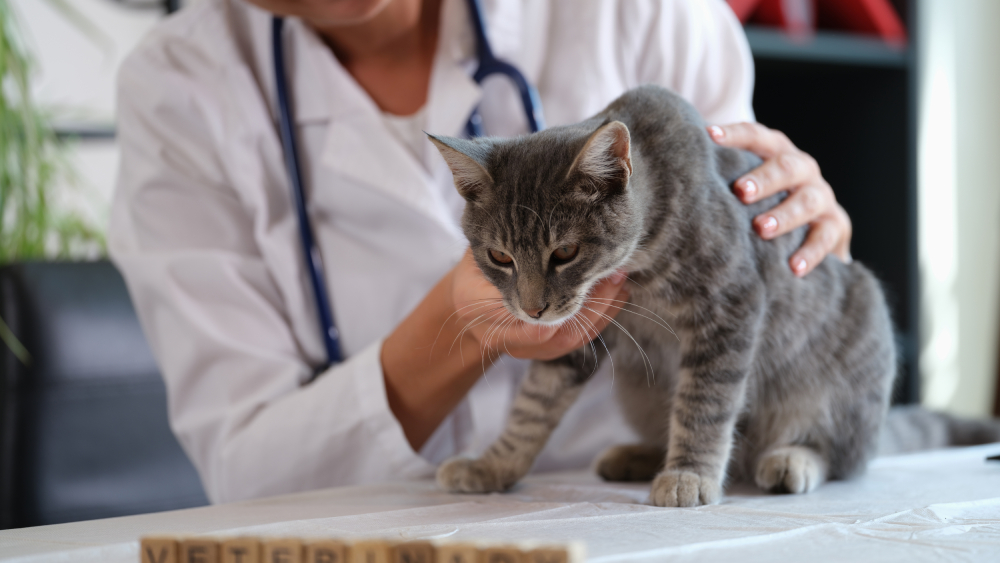
Frequent Asked Questions
Is Catnip Addictive?
No. It’s non-addictive. However, many pets need about 30 minutes between doses to be able to experience the herb’s full effects.
Can Catnip Cause Overdoses?
No. Catnip cannot cause overdoses, but it should still be used in moderation since overindulgence can lead to tummy problems.
Do All Cats Respond to Catnip?
No. Catnip responsiveness is a genetic trait, and only about 60% of cats get a kick from the herb. Kittens don’t feel the effects until they’ve matured a bit.
Silvervine is a plant that produces similar effects. It works on 80% of kitties, including many who don’t respond to catnip.
Silvervine sticks can also be great ways to support cats’ dental health, as chewing on them helps get rid of accumulated plaque. However, it’s best to get veterinary clearance before giving your cat silvervine, particularly if your companion has any health issues.
Conclusion
Catnip is considered safe for most healthy adult cats to enjoy in moderation for recreational purposes, but it may not be the best option for all pets, including those with a history of seizures.
Catnip’s effects vary. It makes some cats more energetic and others more relaxed. Some cats simply don’t respond to catnip, but silvervine is an excellent alternative.
Featured Image Credit: Ling_Chen, Shutterstock

